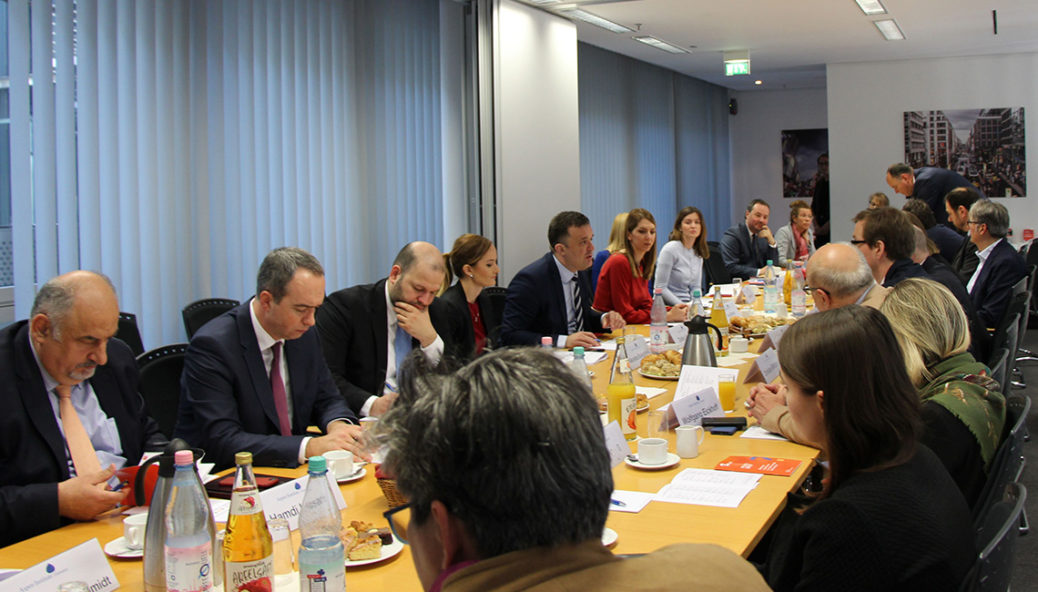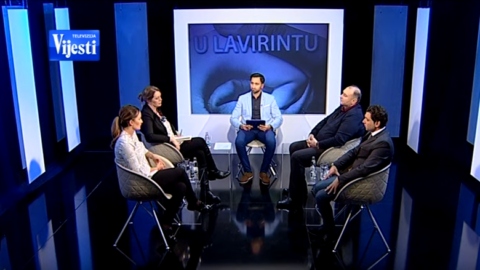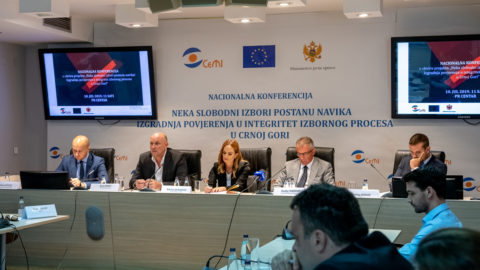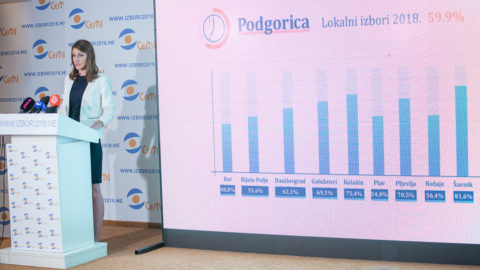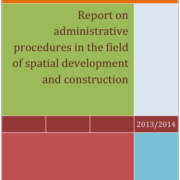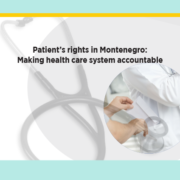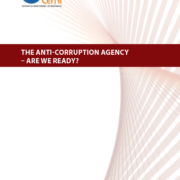Montenegro must finally move forward from the only apparent implementation of reforms and comprehend that being called or considered the frontrunner in the EU integration processes is not something it should lean on but rather a burden and a litmus test. Moreover, in order to learn how to overcome them, the EU should be outspoken when it comes to clearly stating where the problems are as well as to start using the instruments it has at its disposal.
This was announced at the roundtable “Shaping the Way for Montenegro’s EU Integration – Key Challenges and Current Political Developments” which was organised on May 17th by the Centre for Monitoring and Research (CeMI) in cooperation with the Aspen Institute in Berlin.
Zlatko Vujović, President of the Governing Board of CeMI, spoke about the necessity to work on further strengthening of the rule of law and overbridging the existing elements of state capture. In this respect, Montenegro remains still profoundly marked by an extensive political interference and abuse of state resources, which further impedes establishment of independent judiciary and accountable state institutions which are essential for achievement of the necessary socio-political and economic changes. Vujović added that the context of the state capture and the opposition’s long-lasting boycott of the Parliament only feeds a sentiment of inequality and impunity as well as the public mistrust in the integrity of the Government’s work.
The CeMI‘s Executive Director, Nikoleta Djukanović, voiced concerns regarding the unfinished reforms in the field of election administration and inoperability of the Committee which was responsible of preparing long-awaited legal solutions as well as to work on preventing abuse of state and administrative resources, increasing transparency and establishing common ground among different parliamentary fractions. As in the case of electoral reforms, delivery of concrete results in the area of rule of law is impeded by the lack of political will and tendency to protect private before the public interest. In this regard, it is expected that EU will support the efforts of the civic society and other relevant parties to move forward with comprehensive and structural reforms which represent the cornerstone of democracy.
Ana Đurnić, Public Policy Researcher from the Institute Alternative, added that the European Commission should not simply rely on recommendations made by OSCE following the electoral process but assume the role of monitor during the entire government’s mandate. Another constant lingering issue is the lack of political accountability and only apparent efforts of Montenegrin institutions to prevent and prosecute electoral abuse, as reflected through “Audio Recordings” and the latest “Envelope” affairs. Đurnić also pointed out that the Government did not do anything to improve the public procurement system, despite the fact that in the last European Commission report on Montenegro a downturn was registered within this area.
Special Envoy of the Ministry of Foreign Affairs of Germany for Southeastern Europe, Turkey and the EFTA countries, Ambassador Christian Hellbach, gave an overview of the progress made by the Western Balkans countries and challenges they encountered on the path of EU integration processes. He pointed out that even though opening negotiation chapters is important, closing them is what really counts. Ambassador Hellbach also stressed out there is an imperative necessity to enable comprehensive reforms aimed at changing current political habits and eliminating structural deficiencies within the state institutions in Montenegro.
The event was organised within the project “Raising CeMI’s Policy Expertise and Policy Impact on the National and International Level”, financed by Open Society Foundations – Think Tank Fund.


 Montenegrin
Montenegrin